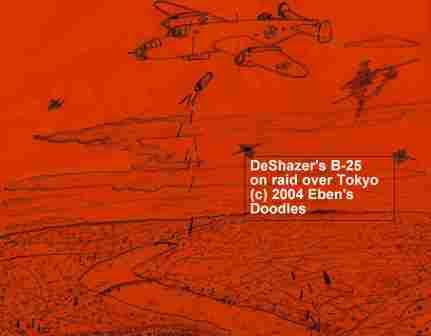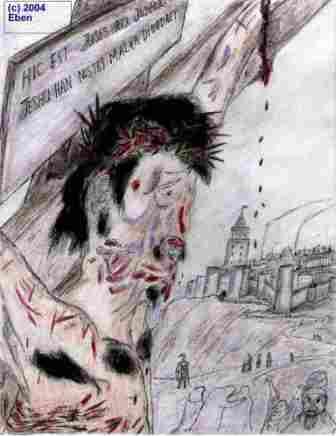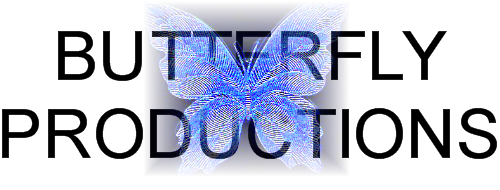

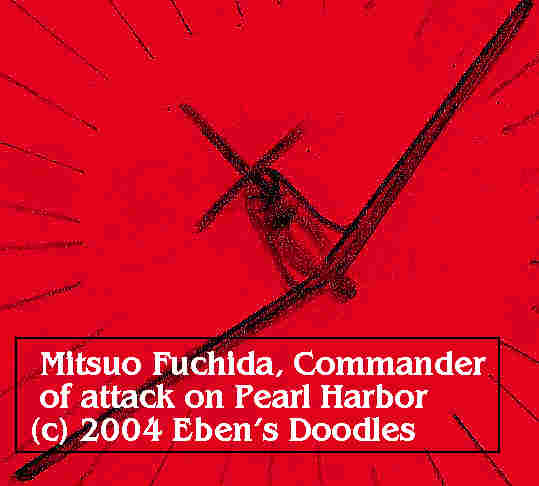
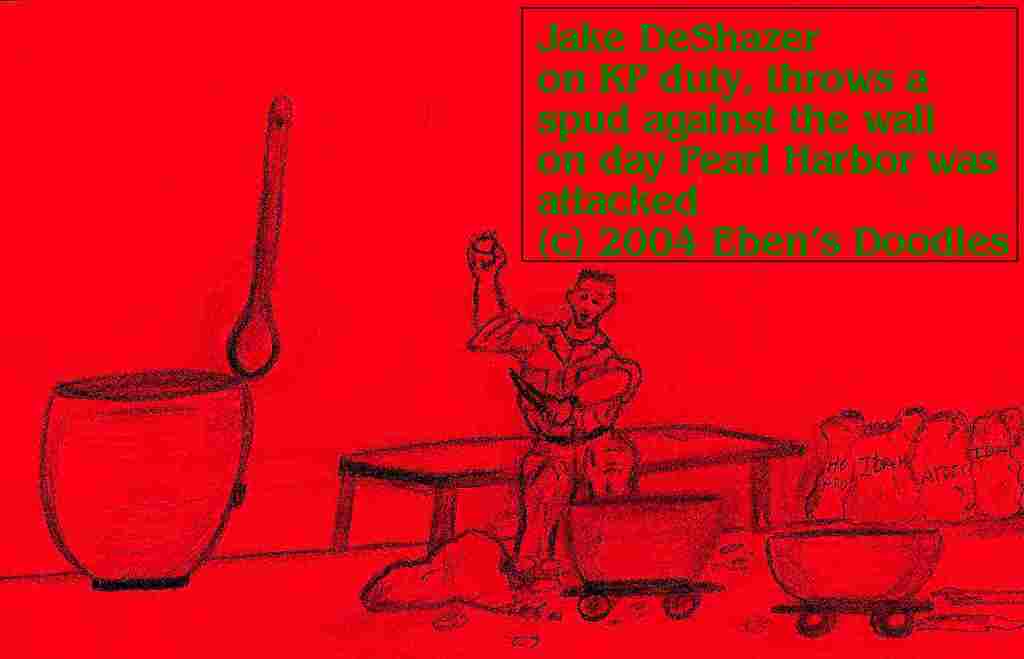
A ring of spy ships had been set as a cordon hundreds of miles at sea, an early warning system that prevented any surprise attack of the enemy. Yet General Jimmy and his B-25 bombers had successfuly launched off the Hornet, an aircraft carrier, and flown six hundred miles out from their target and done the impossible, penetrating the fortress-like security of the main islands, then striking directly at the heart of the Japanese empire, the imperial capital itself! It wasn't Colonel Jimmy's fault they had run out of fuel.
Sighted by some spy boats before they could reach waters closer in, the Hornet either had to turn back, mission unaccomlished, or risk losing Doolittle's badly needed B-25s on a considerably extended flight to the Japanese home islands. It was Col. Doolittle and Admiral Nimitz who agreed the mission should not be scrapped. The plan was altered to account for the extra flight time it needed to reach Japan from 600 miles out.
They were fly to Tokyo, unload their bombs, then head for a certain free Chinese city to the south, refuel there, then head inland for Chungking, where the free Chinese forces were headquartered. It was a good, revised plan, but none of Doolittle's planes made it to Chungking, much less Chuchow, which was seventy miles inland.
They survived, and Colonel Doolittle was taken to Washington, D.C. and given a medal and congratulated by President Truman, and he was even made a general. But Doolittle confessed to anybody who wanted to know what the hero was really feeling and thinking that he wasn't thinking of a Congressional Medal of Honor falling to him after friendly forces returned him to American units. He had parachuted down into a rice paddy, landing in a heap of night soil. Reeling from the smell of his clothes, he was even more upset by the prospects his men faced. The thought of them scattered over a third of China's coast or trying to fight off sharks in the China Sea was too much for him.
Paul Leonard, one of his crew, found him first and asked him, "What do you think will happen when you go home, Colonel?" Doolittle replied slowly, "Well, I guess they'll court-martial me and send me to Ft. Leavenworth."
<
